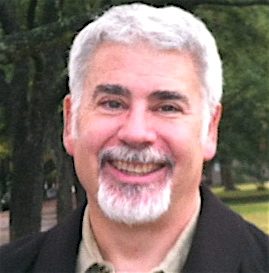Alumna Andy Young (poetry, ’11) is featured on the Poets & Writers blog, discussing her readings. She writes:
The P&W-supported readings I’ve done in New Orleans, like most of my writing from the last couple of years, were inextricably linked to revolution and the uprisings in the Arab “world.” These grants have catalyzed readings that likely wouldn’t have happened otherwise. The readings took place at the Antenna Gallery, a dynamic gallery space which features writers as all as visual artists, the New Orleans Museum of Art, Loyola University, and, at the invitation of the Tulane Arabic Club, at a restaurant which no longer exists called Little Morocco.

Most of the poems I read on these occasions were from a chapbook called The People Is Singular, a collaborative response to the Egyptian revolution featuring my poems and the photography of Salwa Rashad, an Egyptian photographer. All of these readings featured words that try to find a home somewhere between observation and engagement, between Arabic and English, between two cultures. As the spouse of an Egyptian poet, and the mother of two, I am part of a family that constantly seeks to find a point of balance between these things.
Poetry helps me to find that place, and these readings created opportunities to share it. Since January 2011, I have often been asked by American friends and family to help them understand what’s going on in Egypt: to direct people to reliable news sources or to give further context to the headlines. Poetry, of course, is about more than the facts, but I have found that it has served these last couple of years, among other things, to flesh out experiences that may feel distant, other.
Each of these readings also provided opportunities to explore different ways of presenting work. At the Antenna Gallery, I conducted a multimedia presentation with projections of Rashad’s work, soundscapes, and different reading styles. At Loyola University, I hung a small exhibit of Rashad’s work to accompany the poems. At the New Orleans Museum of Art, the reading was in a small gallery space filled with artwork providing a different context.
At Little Morocco restaurant, my husband, Khaled Hegazzi, and I read all the work bilingually, accompanied by the oud and guitar. The restaurant was packed, and the aromas of lamb, cardamom, carrots, and mint tea floated around our voices. It was January 2011, a frightening and exciting time at the beginning of what would come to be known as the “Arab Spring.” My chapbook was yet to be published, but the poems I chose (many in translation from Arabic) were in the spirit of the times. In the question and answer session after the reading, one person asked, “What would you call what is happening in Egypt now?” And I responded, “I’d call it a revolution.” Little did I know how big it was or how long the struggle would be. I continue to seek words that make the narrative(s) of these times tangible and human, though there are times I am hopelessly mute. These opportunities to read and share my attempts to voice my thoughts have helped me to feel that they matter to others and the world.
Read more online.





